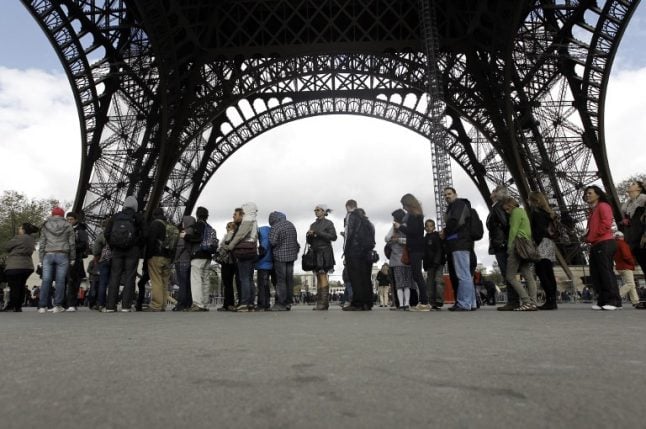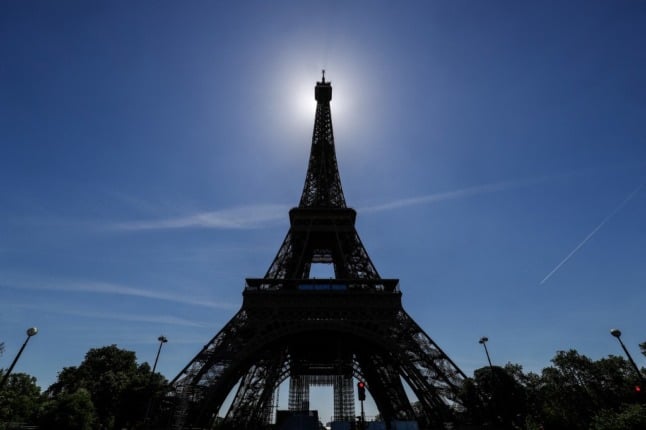Since early July the monument has set aside half of daily tickets for people who buy them in advance on the internet and choose a scheduled time for their visit.
Previously just 20 percent of tickets could be booked ahead of time.
But the tower's management has also decided to reserve specific elevators for each type of ticket holder, a move which “creates lines that are at times
monstruous and often lopsided,” the CGT union said in a statement.
During off-peak times for pre-booked tickets, such as early afternoon or evening, the reserved elevator might be half empty — despite lines of up to
three hours at the elevator for walk-ins.
And high demand at the pre-booked elevator can cause backups that force people to wait long beyond their scheduled visit.
“Beyond the waste in terms of efficiency, and the unhappy visitors… employees' patience has run out,” said the CGT's Denis Vavassori.
He said that the problem was not that 50 percent of tickets are now pre-booked, but that all visitors should be allowed access to the same elevators in order to better manage the flows.
But he said management has refused to budge.
“We're not talking about a failure… there's just an adjustment that needs to be made,” Vavassori said.
The tower, which welcomed more than six million visitors last year, has been hit by repeated strikes by its 300-strong staff in recent years over
issues ranging from pick-pocketing to maintenance work.



 Please whitelist us to continue reading.
Please whitelist us to continue reading.
Member comments